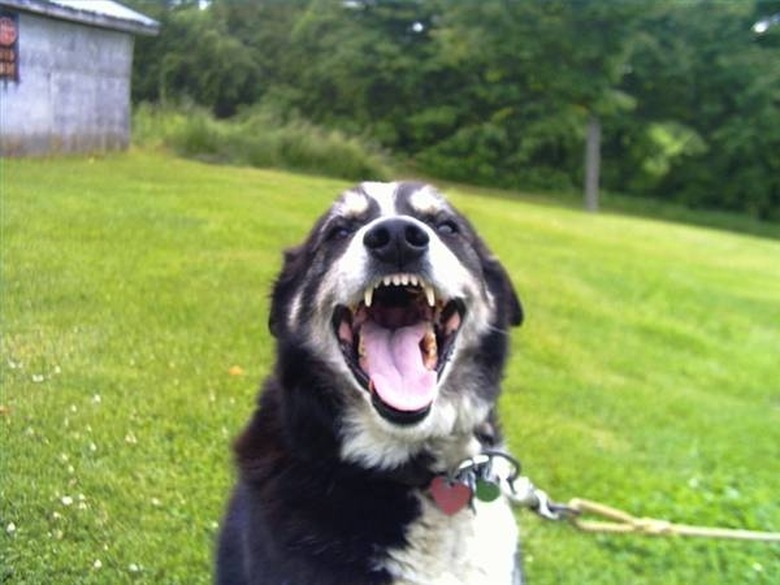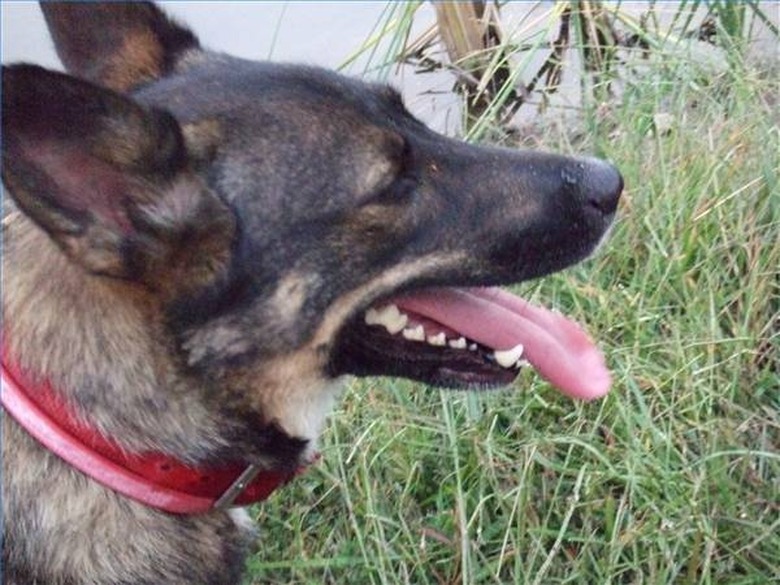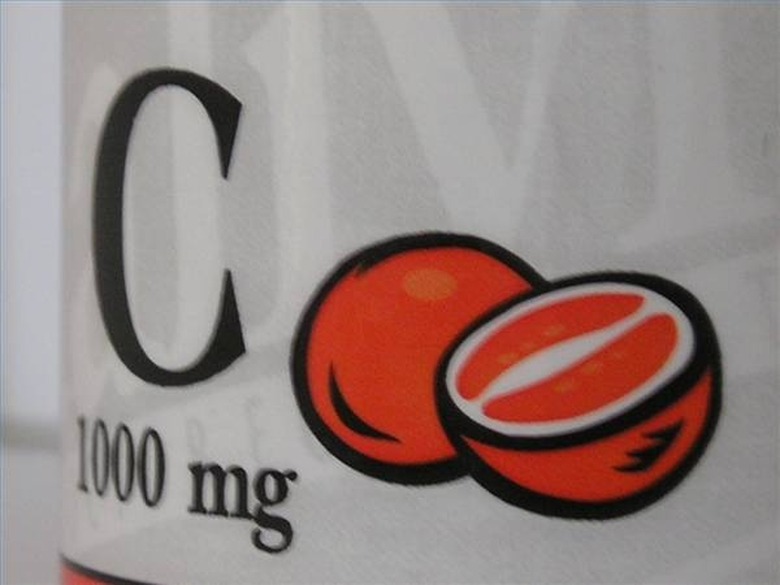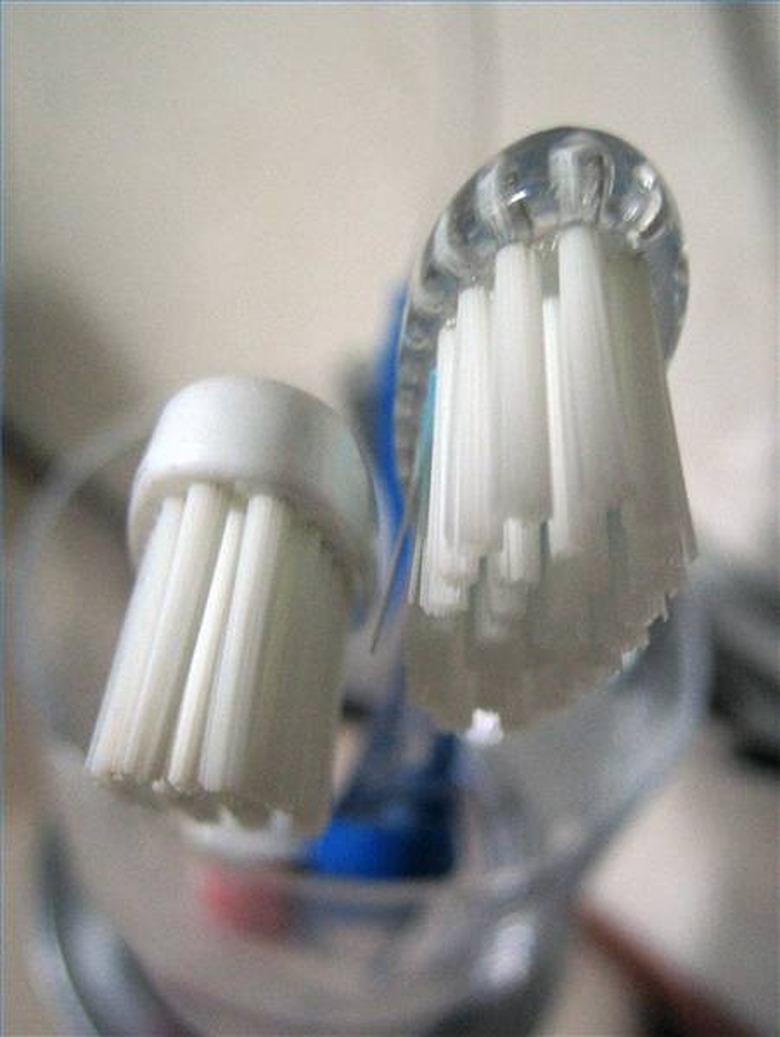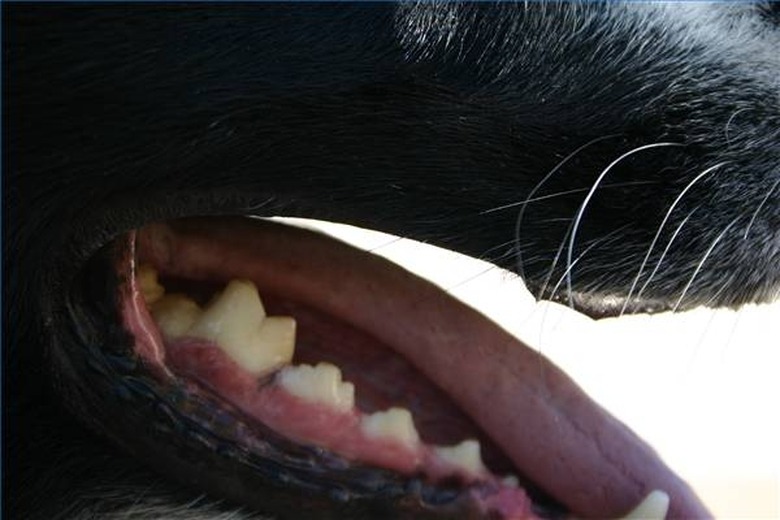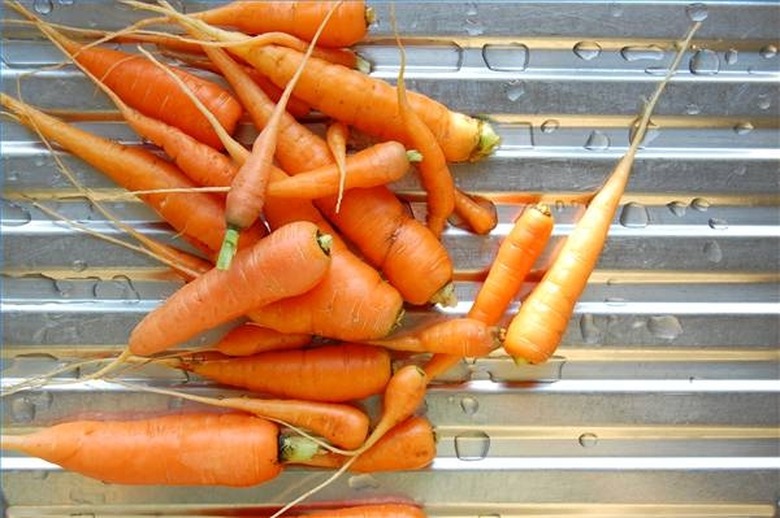Natural Ways To Clean Dogs' Teeth Without Using Toothpaste
At-home dental care, good nutrition and professional veterinary dental cleanings are important steps for keeping your dog's teeth and gums healthy and preventing secondary problems related to dental disease. Veterinarians advise brushing a dog's teeth daily or, if that is not possible, at least three times a week.
Cleaning your dog's teeth does not require toothpaste. Some veterinarians actually do not recommend dog toothpaste because so many brands contain sugar and glycerin, which stay on the teeth and actually increase plaque. Likewise, toothpaste meant for people is not appropriate for dogs.
Risks of Poor Dental Care
Risks of Poor Dental Care
Dental disease is a pervasive problem affecting nearly 85 percent of adult dogs. Dental problems are not limited to gingivitis and periodontitis. Oral bacteria inherent in abnormal dental conditions are released into the bloodstream and may cause serious problems such as diseases of the heart, lungs, liver and kidneys. Other problems include loose teeth and bone loss in the mouth and jaw.
Vitamin C
Vitamin C
One easy, safe and effective way to clean teeth naturally is to dip a very soft toothbrush, or another brushing tool for dogs, into a mixture of one cup water and 1/2 teaspoon powdered vitamin C or ester-C, such as Natur-Vet Ester-C Plus Vitamin C Powder. Then, gently brush along all the teeth, especially at the junction of the teeth and gums. Vitamin C also boosts a dog's immune system, strengthening the body to fight bacteria in the mouth.
Healing Herbs
Healing Herbs
If your dog already has gingivitis or periodontal disease, a veterinarian should remove the plaque and tartar buildup from your dog's teeth and gums before you begin a home care regimen.
When applied directly to the dog's gums, herbs can speed up the healing process after a deep cleaning and to prevent recurrence of oral disease. You may prepare remedies yourself (see Dr. Pitcairn's New Complete Guide to Natural Health for Dogs and Cats) or visit a natural market that sells herbal tinctures. Oregon grape, goldenseal and myrrh are antiseptic herbs that promote growth of new gum tissue. Echinacea may help with oral infections. Calendula aids in healing wounds and stopping your dog's gums from bleeding. Aloe vera soothes inflamed gums.
Dental Tools
Dental Tools
Various dental tools are available for cleaning a dog's teeth if your dog resists a toothbrush. For instance, dog dental wipes help remove leftover food particles that cause plaque.
You also can try a method parents use to clean their baby's gums and new teeth. Wrap some gauze around your index finger and gently scrub your dog's teeth, or use a damp washcloth in the same way.
Finger toothbrush gloves are disposable whole-hand gloves with a brush surface built into the index finger. More environmentally friendly is the finger brush, a soft, flexible, reusable rubber brush that fits over the index finger. It is a less intrusive, gentler way to clean teeth than the more traditional dog toothbrush.
Plaque Reduction Products
Plaque Reduction Products
Most products claiming to reduce plaque when added to your dogs' drinking water or food are not entirely natural. Here are a few exceptions:
PlaqueOff by ProDen, a granulated powder made of seaweed, has been shown in clinical trials to reduce plaque by up to 87 percent and tartar by up to 68 percent when added to wet or dry food daily.
PetzLife Oral Care Dental Spray, made with all-natural plant extracts that kill harmful bacteria on contact, may help end plaque and tartar buildup.
Leba III Dental Spray removes tartar and plaque by stimulating enzymes found in saliva.
PetzLife Oral Care Dental Gel, a natural blend of grapefruit seed extract, all-natural herbs and ingredients, plus wild salmon oil for palatability, produces a safe, effective alternative to dental scaling by mixing with your dog's saliva, coating the teeth and mouth, killing harmful bacteria and loosening plaque and tartar on tooth surfaces.
Diet
Diet
Eliminate sugar- and starch-filled dog foods and snacks. If possible, give your dog large raw knuckle bones that cannot be broken into smaller pieces. Dogs clean their teeth naturally when chewing and gnawing on bones. Always supervise dogs when they are eating bones. Once a dog is accustomed to them, raw bones are safe, but cooked bones splinter easily and should never be given to them. If you cannot get your dog to eat raw, meaty bones or if you do not feel comfortable providing them, try alternatives such as hard raw vegetables (carrots and broccoli) to help keep teeth clean.
Always check with your veterinarian before changing your pet's diet, medication, or physical activity routines. This information is not a substitute for a vet's opinion.
